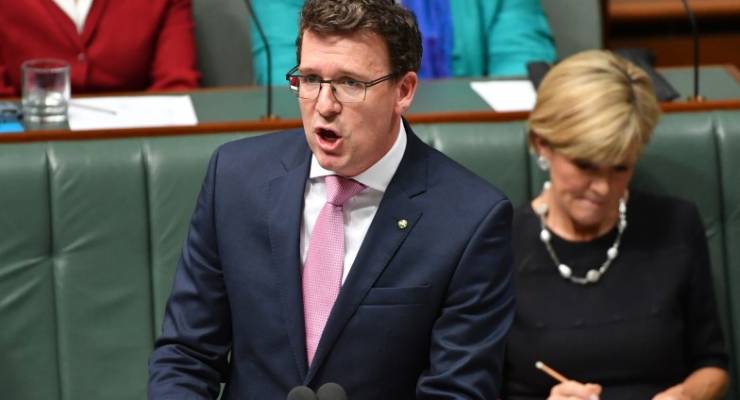
What Alan Tudge and his bureaucrats at the Department of Human Services did to Andie Fox was contemptible and chilling. Fox had dared to publicly criticise DHS for its badly flawed Robodebt program. For that, she was singled out for exemplary punishment: the department and Tudge obtained private information they held on Fox and her family and passed it to a blogger Paul Malone, who used it to criticise Fox in a piece for the Canberra Times.
Tudge, the bureaucrats, Malone and the editors of the Canberra Times have never been held accountable for this. Now, they never will be. In an astonishing decision that has taken more than a year, the acting Privacy Commissioner Angelene Falk has absolved Tudge and the bureaucrats, declaring (with no explanation) that they can use private information “if the individual would reasonably expect it to do so.”
“Reasonably expect to do so.” So, from now on, you can “reasonably expect” that the government has carte blanche to use your private information to publicly attack you should you dare to seek to hold it to account, under the guise of “correcting the record”. The goal is not, of course, to correct the record but to deter critics. The supposed independent privacy protections built into Commonwealth law will offer you no protection. Criticise the government, you can end up like Andie Fox, the details of your personal life spread by some blogger in your local rag.
It’s important to name the public servants involved in this, along with Tudge and his then-chief of staff Andrew Asten. They shouldn’t be able to hide their smug faces in anonymity: Secretary Kathryn Campbell; Deputy Secretary Jonathan Hutson; Chief Legal Counsel Annette Musolino; prolific departmental tweeter Hank Jongen. All deserve to be permanently linked to this. Their contribution to public service in Australia will be that they used personal information about someone who dared criticise the government. One wonders how much they’d enjoy having their private information splashed across the Canberra Times.
And the supposed privacy protections established under Commonwealth law to protect us from them evidently aren’t worth a damn.
But the government doesn’t think it has enough power of its citizens. Not anywhere near enough. Not content with its latest measures — giving police the power to demand ID papers from anyone in an airport, and Immigration’s Mike Pezzullo floating the idea of giving military intelligence cowboys at the Australian Signals Directorate more power to go after Australian citizens — the government is now flagging further, large-scale extensions of surveillance powers, dropping a planned “review” that will “usher in the biggest shake-up of national security legislation since the 1974 Hope royal commission” to The Australian.
This is a government that has already radically extended its surveillance powers, including imposing a mass surveillance scheme on Australians, and significantly eroded basic rights in areas like detention without trial. It has already inflicted as much, if not more, damage on basic rights than John Howard and Philip Ruddock did. Indeed, it is the contention of the Turnbull government that Howard’s 9/11-era laws aren’t nearly sufficient to address the threat of terrorism, despite there being no evidence that we are any safer for the additional laws and hundreds of millions of dollars of extra security spending. Indeed, by the logic of the Turnbull government, we appear to be constantly getting less safe, given our rights have to be constantly further eroded in the name of protecting us.
This is textbook boiling frog stuff, an example of the pernicious nature of the “getting the balance right” argument. Every time politicians and the likes of Papers Please Pezzullo further erode our rights, they declare that they have “got the balance right” between safety and rights. But each time the “balance” tips further in the direction of the former, it makes it easier to push it further, and further. And our “watchdog” media only squawks if journalists are affected. Everyone else can get stuffed.
Given politicians like these, and the failure of the Commonwealth privacy protection apparatus to protect citizens like Andie Fox, it confirms yet again that only a properly entrenched bill of rights can protect us from politicians and bureaucrats determined to attack our basic rights.








So I wonder which Coalition Minister gave Angelene Falk her current job?
Since 1946 the Five Eyes have been attempting to record every phone conversation globally. At that time it cannot have been terrorism and certainly not the refugee Nazis as one was used to set up the CIA.
So why is it necessary to know what everyone in the world is saying and thinking?
Very good article although possible typo:
Have you misspelled Annette Musolino’s surname?
David
Weimar days; keep snoozing Australia, it’s all good.
Boiling frog, or as was described in Yes, Prime Minister as salami tactics – Russia invades just the western edge of Poland, do we go to war? 10 miles further inland, do we go to war? etc